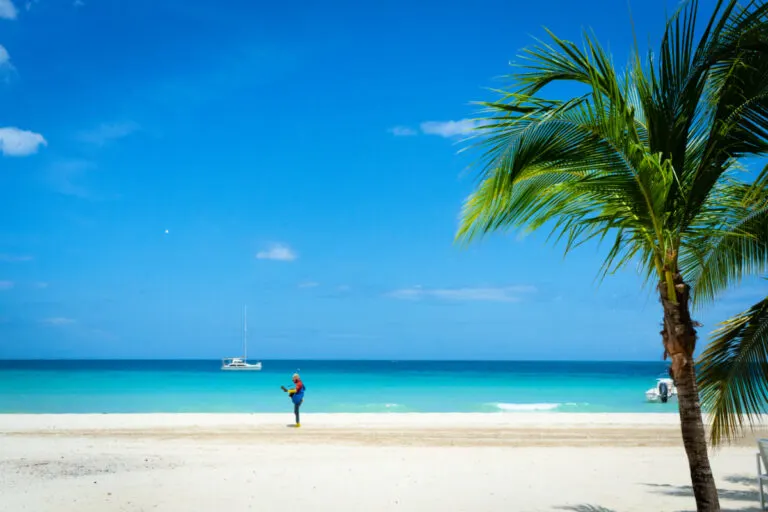Pristine beaches, lively culture, and delicious food. It’s no wonder that many American travelers consider Jamaica a paradise.
But not everyone agrees that Jamaica is the best place for U.S. travelers to be!
The U.S. State Department has issued a new travel advisory for Jamaica, reflecting the impact of crime and the quality of health care. And it isn’t good news!
Here’s what you need to know:
Level 3: Reconsider Travel To Jamaica
The U.S. State Department has issued a new travel advisory for Jamaica, awarding it a Level 3: Reconsider Travel recommendation.
The advisory has been updated to reflect additional information on crime and health care.
If you’re thinking of visiting Jamaica, then you need to be aware that violent crime occurs throughout Jamaica, although tourist areas generally see lower rates of violent crime than other parts of the country.
Despite this, the homicide rate is among the highest in the Western Hemisphere and armed robberies and sexual assaults are common too.
If you are a victim of crime, then the U.S. embassy reports slow or unsatisfactory responses to serious criminal incidents in Jamaica.
U.S. citizens should also not expect the same standard of health care in Jamaica as they would receive in the U.S. This includes lower service levels, slower response times in an emergency, and ambulance services that aren’t always staffed with EMTs.
Not sure what a Level 3 travel advisory rating actually means?
For context, every country is awarded one of 4 travel advisory level ratings. These are level 1: exercise normal precautions, level 2: exercise increased caution, level 3: reconsider travel, and level 4: do not travel.
Is Jamaica Safe To Visit?
This isn’t the first time that the U.S. State Department has advised American travelers to reconsider traveling to Jamaica.
Recently we reported that Jamaica’s tourism industry had set new records, with 2 million visitors in the first five months of 2024.
So clearly, plenty of people are still happy to visit the country.
The fact is that every day we take risks. Crossing the road is a risk: getting in your car and driving to work is a risk. No travel can be guaranteed safe. You just have to decide what level of risk you’re prepared to take on your vacation.
Jamaica has been welcoming tourists for decades. But there can be no denying that some areas are not safe due to gang presence and violent crime.
It is worth bearing in mind that the vast majority of people who travel to Jamaica have an enjoyable, and uneventful time. But we should also acknowledge that some tourists are victims of violent crime.
Staying Safe When Visiting Jamaica
So, if this new advisory hasn’t put you off from visiting the paradise island of Jamaica for your next vacation, how can you stay safe?

Here are some top tips:
- Avoid walking or driving at night, and avoid using public buses at any time of the day and night. Follow the advice of from your travel agent or resort, who will advise you if there are any parts of your resort (such as the beach) that should be avoided at night too.
- Avoid any obvious displays of wealth. We all want to dress well on vacation, and it can be tempting to wear your best jewellery, watches, and designer pieces. But in Jamaica this could just attract unwanted attention. Leave the good stuff at home!
- If you are being robbed then do not physically resist any robbery attempt. Losing your purse is bad news. Resisting and being assaulted (or worse) is even worse news.
- Don’t attempt to bring firearms or ammunition into Jamaica with you. Check your bags before you pack. The penalties for traveling into Jamaica with something as small as a stray round, even accidentally, can be significant.
- Take out travel insurance before you travel to Jamaica and ensure your policy includes medical evacuation insurance (here are our 5 favorite options). The Department of State doesn’t pay medical bills overseas and private hospitals in Jamaica require payment upfront when they admit you.
- Bring plenty of medication with you. Especially if you use prescription medications. Common medications such as insulin can be hard to get your hands on. And regular over-the-counter medications can be expensive.
Credit: Source link





